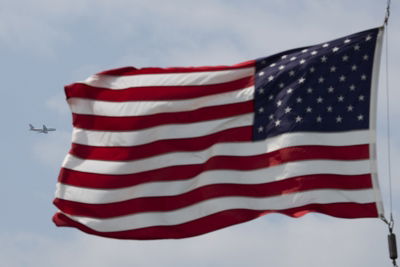America
Following China's military drills, US politicians have come to Taiwan's defence.

May 28th, Taiwan:
A group of US congressmen are currently in Taiwan, and they have voiced their support for the island nation, according to Focus Taiwan, following China's large military drills in the region around Taiwan.
During a meeting with Taiwan's new president Lai Ching-te, Michael McCaul, who is leading a bipartisan congressional delegation, criticised China's "intimidating military exercises" and said they proved the mainland is "not interested in taking Taiwan by peaceful means."
According to CNN, US Representative Michael McCaul branded the drills a "intimidation tactic to punish democracy" and promised to strengthen Taiwan's defence by speeding up the delivery of defensive weapons from the US while speaking at a news conference in Taipei. In addition, he reaffirmed the United States' commitment to Taiwan for the long run, calling on the country to see the United States as its "reliable partner."
The Republican lawmaker emphasised that China responded to last Monday's inauguration of Taiwan's president with a series of military drills.
"The forces of China conducted intimidating military exercises, sending 110 aircraft and 46 warships, demonstrating they are not interested in taking Taiwan by peaceful means," according to him.
Focus Taiwan said that he urged all democracies to "stand together against aggression and tyranny," referring to both Putin of Russia and Xi Jinping of China. In his remarks, McCaul emphasised that the provision of defensive armament systems to Taiwan for the island nation's self-defense is mandated under the Taiwan Relations Act (TRA), an important document that has guided the informal US-Taiwan relations since the termination of diplomatic relations in 1979.
We need to guarantee that no sane person will attempt to disrupt the tranquilly in which you have flourished. The United States of America will remain a dependable ally to Taiwan in spite of any attempts at intimidation or pressure, he assured the Taiwanese people.
To McCaul, his entourage, and the whole United States Congress, Taiwan's president extended his deepest appreciation for their unwavering support throughout the years. As he took office, the president reaffirmed his administration's commitment to working closely with the United States and other friendly nations to keep the peace, stabilise the region, and foster mutually beneficial growth.
"Moving forward, my administration will continue to enhance national defence, showing the world the determination of Taiwan's people to defend their home," said the president. Based on a report by Focus Taiwan, McCaul attributed the approximately USD 20 billion in delayed US arms orders to Taiwan mostly to challenges relating to the defence industrial base, drawing attention to the present weapons order backlog.
Just after Lai's inauguration on May 20, China finished drills circling Taiwan, which brought attention to the "very dangerous situation" across the Taiwan Strait, he said. Because of this, deterrence is crucial. He claimed, "I know every member (of congressmen) here will take that message back" regarding the urgency with which the United States should send military hardware to Taiwan.
According to Focus Taiwan, prior to the backlog issue, McCaul brought attention to the fact that US President Joe Biden had extended help to Taiwan in the form of USD 4 billion in grants and Foreign Military Financing loans in the previous months.
In order to deter the People's Liberation Army (PLA) from deploying soldiers to Taiwan, McCaul emphasised that marine assets, rather than land-based ones, are the most vital US defence help for Taiwan.
Last Sunday, McCaul, Young Kim, Joe Wilson, and Andy Barr—all Republicans—and Jimmy Panetta and Chrissy Houlahan—both Democrats—joined the US group that landed in Taipei. Aside from that, the Ministry of Foreign Affairs reports that McCaul would meet with Taiwan Vice President Hsiao Bi-khim and other members of Lai's new national security and foreign affairs team to discuss regional security, Taiwan-US relations, and other topics of mutual interest.



































